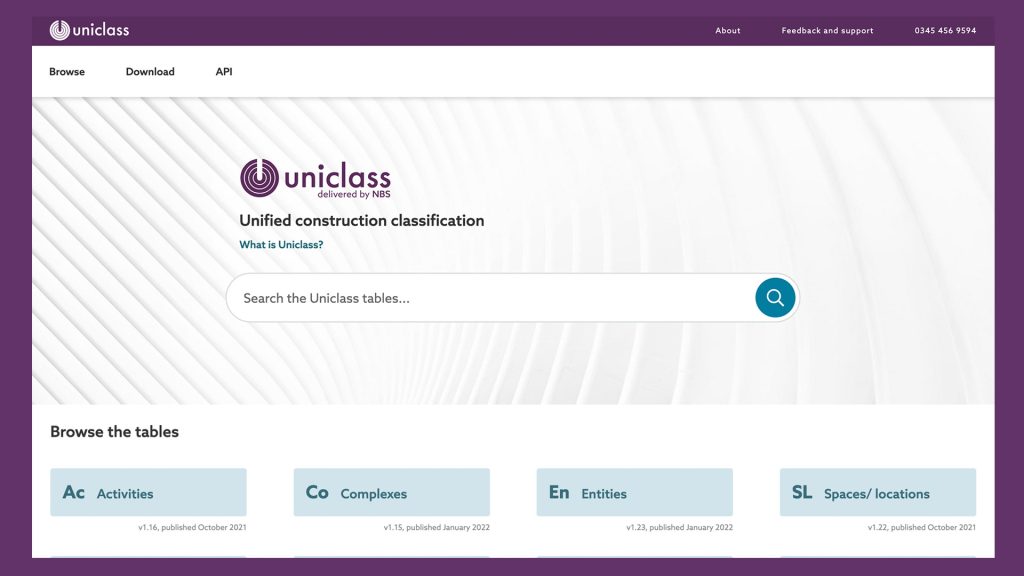Company says new website will go a long way in helping more industry professionals unlock the benefits of consistent classification
NBS has redesigned its Uniclass website to better support interoperability between software platforms and enable users to more easily explore the relationships between classifications. According to the company, the new tool offers a more ‘user-friendly’ platform with an improved search functionality returning results based on synonyms.
NBS was part of the team that first created Uniclass back in 1997 to provide a unified classification structure for all disciplines in the built environment. The company explains that Uniclass contains various tables that allow for products, materials, buildings, landscape, and infrastructure to be classified using one unique system, independently of their scale, and it is also a requirement for BIM projects as set by the ISO 19650 series of standards.
According to NBS, the new tool is more interactive, allowing users to browse Uniclass structures through a more accessible format that ensures codes can be found instantly, and the latest and historical tables can be downloaded easily.
The site also offers an improved visual layout, which has been modernised and adapted to the needs of the user. Website content has also been updated and refreshed with new articles and users’ case studies to showcase examples of the classification in use, including its use by the specialists at the Palace of Westminster, for which additional codes were created so they could be applied to the historic items inside.
Furthermore, to improve access, a Uniclass API allows data to be ‘easily extracted and downloaded’, in line with the efforts to support interoperability.
“Digital construction is the future of the UK’s built environment. However, to make technology use ubiquitous we need to establish common protocols and approaches, including having a classification system that’s widely used across the sector,” said Tina Pringle, director of digital information at NBS.
“Uniclass is such a tool and despite being a requirement of public sector projects, private sector adoption is still somewhat lacking. That’s why we’ve looked at what we can do to make Uniclass easier to use, and this new website will go a long way in helping more industry professionals unlock the benefits of consistent classification.”






